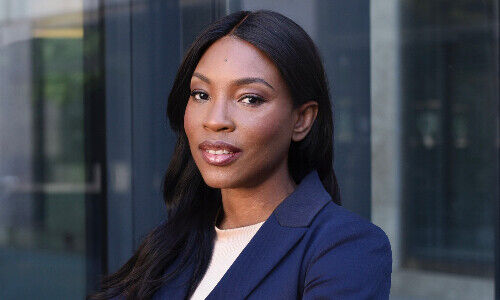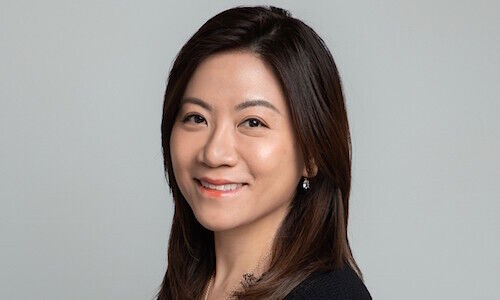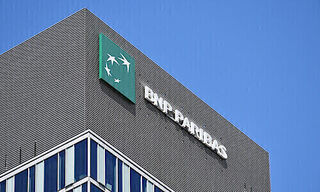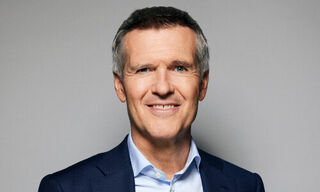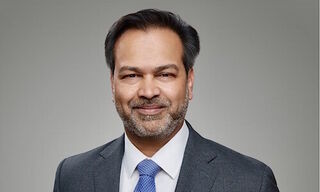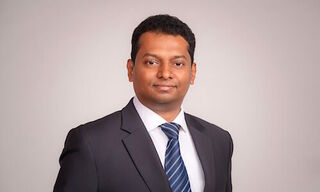Jean Keller: «The Sudden Death of the Black Swan»
The significant destruction of value in recent weeks shows us that it may be time to go back to fundamentals and put the real economy first, Jean Keller writes in his essay for finews.first.
This article is published on finews.first, a forum for authors specialized in economic and financial topics.
The novel Coronavirus crisis has probably not yet reached its climax and much ink will probably continue to flow in an attempt to assess all its health, political, social and economic impacts. It is therefore far too early to speculate, except that most of the changes are likely to be less dramatic than some hope, but probably much more profound and permanent than others would like to believe.
Yet, if there is one area where one can already venture to make some predictions, it is likely to be the asset management industry, which has been deeply shaken by the sudden and deep market downturn and the remarkable return of volatility.
«It is clear that financial models have been totally unable to predict the extent of the market correction»
Indeed, our industry is going through two parallel but not always connected debates. The first is a recurring discussion on the use of quantitative methods, while the second is the eternal controversy over passive management and the merits of ETFs in portfolio management.
It is clear that financial models have been totally unable to predict the extent of the market correction. In fact, the violence of the movements in bonds, equities and even gold, which is supposed to the ultimate safe haven, was so extreme that their amplitude is far beyond the now-famous «black swans» so much talked about since the book by economist Nassim Nicholas Taleb.
To be convinced of this, one only has to look at a few figures. Thus, in mid-March, the markets plunged by 9 times the historical standard deviation for bond markets, 10 times for equity markets and 5 times for gold. As a reminder, the standard deviation represents the variation around the mean value that occurs in 68.2 percent of cases. In the case of gold, 5 times the standard deviation corresponds to a statistical event that should occur only once every 67,000 years.
«Quantitative models have been completely useless in guiding investors through this crisis»
For the other two markets, the figures are so enormous that they no longer represent anything to the human mind: once every 1017 and 1021 years respectively for bonds and equities. In other words, quantitative models have been completely useless in guiding investors through this crisis and have instead contributed massively to increasing volatility.
Indeed, many so-called «modern» management techniques, encouraged by the current craze for artificial intelligence, rely on models based on the assumption that markets always evolve within certain quantifiable limits and that, by using these statistical boundaries, portfolio risk could be controlled scientifically. We then add certain assumptions about the existence of extreme events (the famous «black swans») and that's it!
Based on these models, leverage levels have increased considerably over time. Alas, reality has shatteringly challenged these methodologies. Thus, while the markets were completely outside the reassuring framework outlined by the all-quantitative champions, many managers who followed «risk parity» or «systematic» management techniques – all of which make massive use of leverage – were forced to sell their assets in absolute urgency, at the same time as the usual players were themselves reducing their risk in the midst of the generalized downturn. The result was a snowball effect that quickly turned into a devastating avalanche.
«And that’s where the problem lies»
For investors in general – and beyond the wealth effect that hit everyone head-on – the impact of these distortions has been felt because of the widespread use of ETFs, which are very useful instruments but are probably used too widely and without always using the necessary discernment. Because initial success has led to the creation of ETFs based on anything and everything.
And that’s where the problem lies: just because these instruments a priori correctly reproduce a basket of highly liquid securities does not mean that the same is true for less widely traded asset classes. In fact, the actual behavior of the countless highly leveraged tools or those that attempt to replicate non-replicable indices (as in the credit field) surprised many investors, who felt wrongly protected by the Doxa of «all passive» advocated by some major asset management firms.
«This is absolutely not a question of throwing ETFs out with the bathwater»
To give a concrete example, one of the largest ETFs in the world, Vanguard's Total Bond Market, which has a weighting of 70 percent in U.S. Treasury bonds (the most liquid instruments in the world!), posted a 6.17 percent discount to its theoretical value on March 12!
This is absolutely not a question of throwing ETFs out with the bathwater, nor is it an attempt to close the debate between proponents of active and passive management. On the contrary, ETFs are a tool of choice for quickly obtaining neutral exposure in an asset allocation grid.
On the other hand, just as consumers are beginning to ask themselves serious questions about industrial hyper-processed food to prefer more natural products, it may be time to return to more direct and «real» investments. For with increasingly synthetic constructions, the underlying reality has sometimes been lost sight of.
Asset management must not forget that its societal role is first and foremost to allocate capital to the most productive sectors and above all to the most productive companies in the economy and not to indiscriminately sprinkle good and bad companies. And to distinguish the wheat from the chaff, there is nothing like fundamental financial analysis to identify these companies.
Jean Keller joined Quaero Capital in 2011 as CEO and partner. Previously, he was CEO of 3A (Alternative Asset Advisors), an alternative investment division of the Swiss banking group Syz. Prior to joining Syz, Keller spent eleven years in various roles within the Lombard Odier Darier Hentsch (LODH) Group in Geneva, New York, and London, where his father was a partner. From 2002 to 2004, he was CEO of LODH Asset Management in London and a member of the group executive committee. He also managed LODH's institutional asset management and was a member of the asset management board. His brother is Hubert Keller, a partner at Lombard Odier.
Previous contributions: Rudi Bogni, Peter Kurer, Rolf Banz, Dieter Ruloff, Werner Vogt, Walter Wittmann, Alfred Mettler, Peter Hody, Robert Holzach, Craig Murray, David Zollinger, Arthur Bolliger, Beat Kappeler, Chris Rowe, Stefan Gerlach, Marc Lussy, Nuno Fernandes, Richard Egger, Maurice Pedergnana, Marco Bargel, Steve Hanke, Urs Schoettli, Ursula Finsterwald, Stefan Kreuzkamp, Oliver Bussmann, Michael Benz, Peter Hody, Albert Steck, Martin Dahinden, Thomas Fedier, Alfred Mettler, Brigitte Strebel, Peter Hody, Mirjam Staub-Bisang, Nicolas Roth, Thorsten Polleit, Kim Iskyan, Stephen Dover, Denise Kenyon-Rouvinez, Christian Dreyer, Kinan Khadam-Al-Jame, Robert Hemmi, Anton Affentranger, Yves Mirabaud, Katharina Bart, Frédéric Papp, Hans-Martin Kraus, Gerard Guerdat, Mario Bassi, Stephen Thariyan, Dan Steinbock, Rino Borini, Bert Flossbach, Michael Hasenstab, Guido Schilling, Werner E. Rutsch, Dorte Bech Vizard, Adriano B. Lucatelli, Katharina Bart, Maya Bhandari, Jean Tirole, Hans Jakob Roth, Marco Martinelli, Thomas Sutter, Tom King, Werner Peyer, Thomas Kupfer, Peter Kurer, Arturo Bris, Frederic Papp, James Syme, Dennis Larsen, Bernd Kramer, Ralph Ebert, Armin Jans, Nicolas Roth, Hans Ulrich Jost, Patrick Hunger, Fabrizio Quirighetti, Claire Shaw, Peter Fanconi, Alex Wolf, Dan Steinbock, Patrick Scheurle, Sandro Occhilupo, Will Ballard, Michael Bornhaeusser, Nicholas Yeo, Claude-Alain Margelisch, Jean-François Hirschel, Jens Pongratz, Samuel Gerber, Philipp Weckherlin, Anne Richards, Antoni Trenchev, Benoit Barbereau, Pascal R. Bersier, Shaul Lifshitz, Klaus Breiner, Ana Botín, Martin Gilbert, Jesper Koll, Ingo Rauser, Carlo Capaul, Claude Baumann, Markus Winkler, Konrad Hummler, Thomas Steinemann, Christina Boeck, Guillaume Compeyron, Miro Zivkovic, Alexander F. Wagner, Eric Heymann, Christoph Sax, Felix Brem, Jochen Moebert, Jacques-Aurélien Marcireau, Peter Hody, Ursula Finsterwald, Claudia Kraaz, Michel Longhini, Stefan Blum, Zsolt Kohalmi, Karin M. Klossek, Nicolas Ramelet, Søren Bjønness, Lamara von Albertini, Andreas Britt, Gilles Prince, Fabrizio Pagani, Darren Willams, Salman Ahmed, Stephane Monier, and Peter van der Welle, Beat Wittmann, Ken Orchard, Michael Welti, Christian Gast, Didier Saint-Georges, Jeffrey Bohn, Juergen Braunstein, Jeff Voegeli, Gérard Piasko, Fiona Frick, Stefan Schneider, Matthias Hunn, Andreas Vetsch, Fabiana Fedeli, Marionna Wegenstein, Kim Fournais, Carole Millet, Ralph Ebert, Lars Jaeger, Swetha Ramachandran, Brigitte Kaps, Thomas Stucki, Teodoro Cocca, Neil Shearing, Claude Baumann, Guy de Blonay, Tom Naratil, Oliver Berger, Robert Sharps, and Santosh Brivio, Tobias Mueller, and Florian Wicki.









